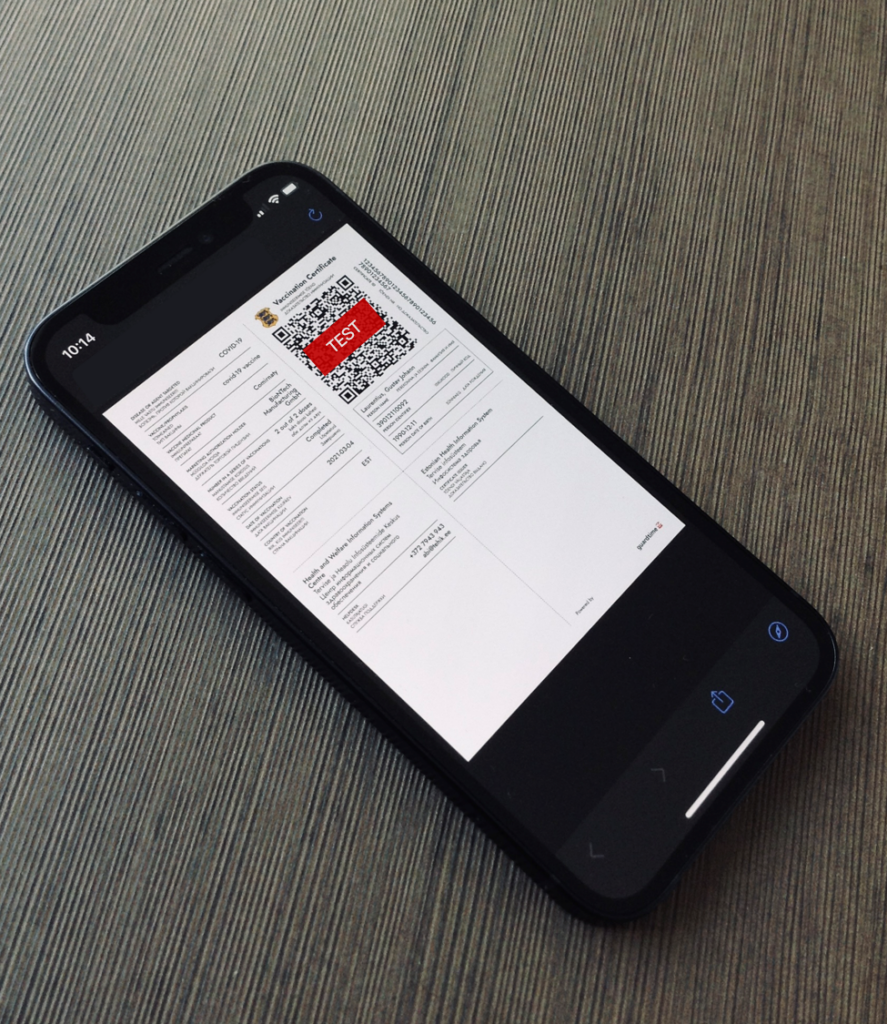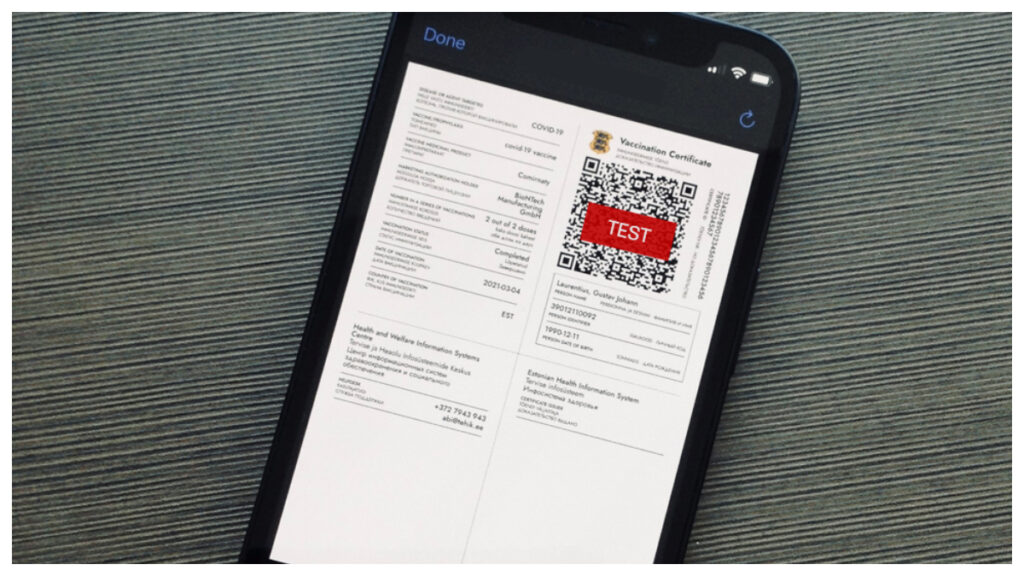Estonia has introduced a digital vaccine passport to support the country’s response to COVID-19 pandemic; the secure vaccination certificate, called VaccineGuard, is issued through the Estonian national patient portal and is available immediately, enabling the country’s citizens to cross borders with proof of vaccination status.
The VaccineGuard platform is based on a yearlong collaboration with the Estonian, Hungarian and Icelandic governments, the World Health Organisation and AstraZeneca Estonia, the local branch of the British-Swedish pharmaceutical company. The platform was developed by Estonian-founded deep tech company, Guardtime.
The VaccineGuard vaccination certificates are issued through the Estonian national patient portal, digilugu, and enable Estonian citizens to have proof of their vaccination status on their mobile phones. The QR code on a mobile phone will certify on a border the data is from Estonia’s state database and is therefore reliable.
The Estonian digital passport will comply with the proposed EU “green certificate” (the European Commission aims to create a Digital Green Certificate to facilitate the safe free movement of citizens within the EU during the COVID-19 pandemic), once the latter is deployed.
Extending the functionality
The VaccineGuard platform provides the capabilities to extend the functionality by linking the full supply chain of each individual vaccine to the certificate, enabling rapid root cause analysis in the event of adverse reactions.
“In the next phase, also Covid test results and recovery confirmation will be issued from the platform with the same integrity guarantee that the data originates from the legitimate source and process,” Ain Aaviksoo, the chief medical officer of Guardtime, said in a statement.

Guardtime said the platform they developed enabled pharmaceutical manufacturers to work with governments and their care provider clients to see through the last mile of the pharmaceutical value chain for real-time stock and supply, counterfeit and diversion detection as well as rapid correlation and root cause analysis of adverse reaction detection.
“VaccineGuard provides a distributed data exchange platform for public health authorities, hospitals, citizens, certificate providers, vaccine manufacturers, border guards and others to share information securely and reliably across systems and borders,” the company said. “It provides a feedback loop between all participants in the network without creating centralised shared databases or ERP systems (enterprise resource planning – editor), while employing leading privacy and security features to protect patient and other sensitive information.”
A technically advanced certificate programme
Estonia’s president, Kersti Kaljulaid, said in a statement she was “glad Estonia has developed a trustworthy and technically advanced certificate programme”. “As one of the most digitally advanced nations in the world, we are very excited to offer our citizens a trustworthy COVID-19 vaccine certificate, providing another major step on our road back to normality. Online-only meetings are not enough to ensure true connectivity, people also need the freedom to travel for both business and leisure,” she said.
Kuuno Vaher, the general manager of AstraZeneca’s Central Europe and Baltic operations, said in a statement that “VaccineGuard is a real breakthrough for pharma companies”.
Guardtime was founded in Tallinn in 2007 by a team of cryptographers and computer scientists.
Cover: Estonia’s vaccine passport. Images by Guardtime.

